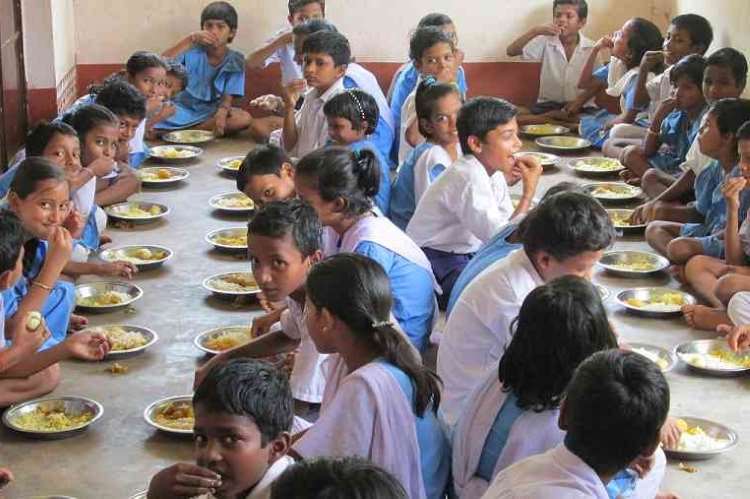
At a time when political parties and media are quick to label social welfare schemes as freebies or ‘revdi’ culture, Tamil Nadu has become the first state in the country to supplement the nation-wide mid-day meal initiative with its own breakfast scheme. The Tamil Nadu government launched the Chief Minister’s Breakfast Scheme on a pilot basis last year. From the coming academic session, the state government looks to expand the scheme to nearly 30,000 primary schools. The announcement was made in the state budget for 2022-23 by finance minister Palanivel Thiagarajan. He said the government has earmarked Rs 500 crore for the scheme. The move is likely to benefit around 1.8 million children.
Interestingly, Tamil Nadu is the state which first launched the mid-day meal scheme. It was in the 1920s that the Justice Party introduced the idea of free meals for school going children. However, it took over 60 years for the Supreme Court to make it mandatory for all states. A recent assessment study by the school education department shows that in nearly all government primary schools where the scheme was introduced in September last year, attendance has seen an increase. The question, however, is why hasn’t the initiative gone national already.
READ | Multilateral development banks need reforms to stay relevant
It is not like the idea hasn’t struck the Union government. While a proposal was floated under the National Education Policy announced by the Narendra Modi government to introduce breakfast besides mid-day meals in schools. The move was vetoed by the ministry of finance, the Union education ministry had said in August 2021. The bone of contention was that the finance ministry developed cold feet after learning about the Rs 4,000 crore funding need. On the other hand, Tamil Nadu Chief Minister MK Stalin while launching the breakfast scheme said that doing so was not a factor of cost but part of a government’s duty.
India ranked 107th out of 121 assessed countries on the 2022 Global Hunger Index (GHI). The level of hunger in India has been categorised as serious. According to the latest National Family Health Survey, at least 35.5% of India’s children were stunted. All this calls for better food management and renewed focus on social welfare schemes such as the one announced by the Tamil Nadu government.
A case for the national school breakfast scheme
Supplementing the mid-day meal initiative with a breakfast programme offers similar benefits as the former scheme. The mid-day meal programme is a vital initiative that provides essential nutrients to children, but it only caters to one meal of the day. A breakfast programme would help ensure that children receive a more comprehensive and balanced diet that meets their nutritional requirements. Also, it is a scientifically established fact that breakfast is the most important meal of the day as it provides the necessary energy and nutrients to fuel the brain and improve cognitive function. By supplementing mid-day meals with breakfast, children’s learning abilities and concentration levels will be enhanced.
India has a high prevalence of malnutrition, and children from low-income families are particularly vulnerable. A breakfast scheme, along with mid-day meals, would help to address the issue of malnutrition among children and promote their overall health and well-being. This will also help with school attendance which in turn will improve the quality of education in the country. The country also witnesses high dropout rates in schools, especially among girls. With better availability of food in schools, the government may be able to improve female literacy as well.
The mid-day meal scheme
The programme aims to provide nutritious meals to school children and it has been making strides in improving educational outcomes and reducing malnutrition rates among children. It is considered one of the largest school feeding programs in the world, providing free meals to over 100 million children across the country.
As per the provisions of National Food Security Act, 2013, children studying in classes 1 to 8 or within the age group of 6-14 years are entitled to one mid-day meal free of charge, in all schools run by local bodies, government and government aided schools. Some States and Union Territories also provide additional items such as milk, egg and fruits to students from their own resources. At least 11.59 crore elementary school students are beneficiaries under the mid-day meal scheme of the Human Resource Development (HRD) Ministry.
Like every government scheme, the mid-day meal scheme is far from perfect and has its own share of issues. There have been several instances of corruption and mismanagement of funds under the scheme. This has resulted in the diversion of funds, the use of substandard ingredients, and the pilferage of food grains. The performance of individual states regarding the implementation of the mid-Day Meal scheme varies, with some states performing better than others. While the scheme is implemented across the country, the effectiveness of its implementation depends on the resources and infrastructure available in each state.
READ | Green hydrogen: Hurdles to India’s quest to become a global leader
Some states have been successful in improving the quality of meals provided to children, ensuring regularity of the meals, and providing additional resources such as kitchen equipment and utensils. These states include Tamil Nadu, Kerala, Andhra Pradesh, and Karnataka. These states have also implemented measures to improve the nutritional content of the meals, such as introducing more vegetables and fruits into the menu.
Other states have struggled with the implementation of the scheme due to issues such as inadequate infrastructure, shortage of resources, and lack of monitoring mechanisms. These states include Uttar Pradesh, Bihar, Jharkhand, and Madhya Pradesh. Reports have highlighted issues such as poor quality of food, lack of regularity in providing meals, and inadequate infrastructure for cooking and storage of food in these states.
